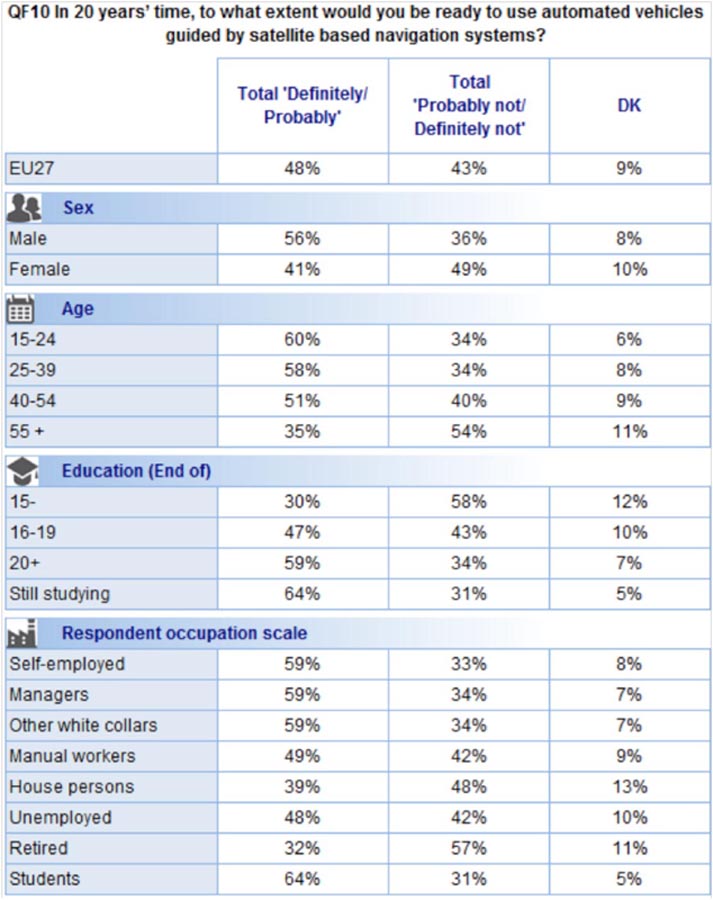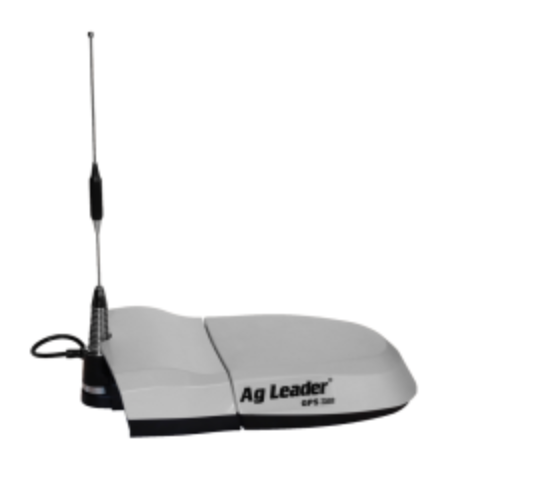 Demographic differences toward use of satellite navigation-guided automated vehicles. EC Eurobarometer poll, May-June 2013
Demographic differences toward use of satellite navigation-guided automated vehicles. EC Eurobarometer poll, May-June 2013Results from a Eurobarometer poll released last week show general support for space activities among European residents, but intriguing national and demographic differences in attitudes toward GNSS-based automated vehicles.
Results from a Eurobarometer poll released last week show general support for space activities among European residents, but intriguing national and demographic differences in attitudes toward GNSS-based automated vehicles.
More than two-thirds of respondents in The Netherlands (69 percent) said they would be ready to use automated vehicles guided by satellite-based navigation systems within 20 years, as would 65 percent in Denmark. However, in 16 nations, fewer than half would be ready to do so — with the lowest support coming from citizens of Romania at 39 percent and Cyprus and Bulgaria (both 38 percent).
Socio-demographic divisions also appeared in the survey results, with men being much more likely to be ready to use GNSS-guided automated vehicles (56 percent) than women (41 percent); younger respondents (58–60 percent among those aged 15 to 39 years) than older (35 percent among those over 55), and higher educated than less educated.
The European Commission’s Directorate-General Enterprise and Industry commissioned the survey to measure the attitudes of the European public towards space activities in the European Union and in Croatia. TNS Opinion & Social conducted the poll between May 25 and June 9, 2013. Some 27,680 Europeans aged 15 or over were interviewed face-to-face in their homes and from the 27 EU member states as well as Croatia, which became a member in July 2013.
Respondents who said that space technologies and space-based services will play an important role in transportation over the next 20 years are among the most likely to be willing to use automated vehicles guided by satellite-based navigation systems. Furthermore, regardless of the fields for which they think space technologies will play an important role in 20 years’ time, an absolute majority of respondents indicated that they would be ready to use automated vehicles guided by satellite-based navigation systems in the future.





